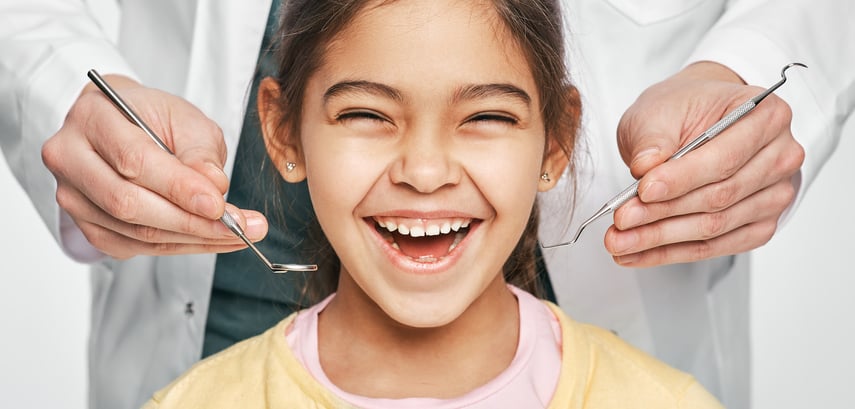
If you are a parent, you probably want the best for your child’s health and well-being. You take them to regular check-ups with their pediatrician, eye doctor, and dentist. But what about early screening for orthodontic issues?
Early Orthodontic Check
You may think that orthodontic treatment is only for teenagers or adults who want to straighten their teeth. However, the American Association of Orthodontists (AAO) recommends that your child’s first check-up be performed when an orthodontic problem is first recognized, but no later than age 7.
Why age 7?
By then, your child has enough permanent teeth for an orthodontist to evaluate the developing teeth and the jaws, which in turn can provide a wealth of information. Dr. Michelle Janbakhsh, MS, DDS, ND, is a NIHA biological dentist with special interest in functional orthodontics; trained to diagnose signs of breathing disorders, incorrect functions, and consequently orthodontic issues. She has been trained to spot subtle problems even in young children.
Three Possible Outcomes of an Initial Orthodontic Check-up
- No treatment is expected to be necessary.
- Treatment may be needed in the future, so the child will be followed periodically while the face and jaws continue to grow.
- There is a problem that lends itself to early treatment.
While there are many orthodontic problems that can be treated after all permanent teeth have come in, early treatment is the best approach for patients with functional problems. These can become more serious over time if left untreated.
The goal of early treatment is to intercept the developing problem, eliminate the cause, guide the growth of facial and jaw bones, and provide adequate space for incoming permanent teeth. A patient may require a second course of treatment after all permanent teeth have come in to move those teeth into their best positions, to achieve a better bite or aesthetics.
Benefits of Early Orthodontic Treatment
- Preventing more severe problems from developing in the future
- Reducing the need for tooth extractions or surgery later
- Shortening the duration and complexity of later treatment
- Improving facial growth and balance and incorrect habits
- Enhancing the appearance and function of the teeth
- Boosting the confidence and self-esteem of the child
Common Problems That May Require Early Orthodontic Treatment
- Underbites – when the lower front teeth are ahead of the upper front teeth
- Crossbites – when the jaw shifts to one side
- Very crowded teeth
- Excessively spaced teeth
- Extra or missing teeth
- Teeth that meet abnormally, or don’t meet at all
- Thumb, finger, or pacifier-sucking that is or has affected the position of teeth or jaw growth, mouth breathing, snoring
Some of these orthodontic problems are inherited, while others may result from accidents, dental disease, or abnormal function.
Early Orthodontic Intervention Can Save Time and Money
Early orthodontic treatment can take many forms. The provider may prescribe a fixed or removable “appliance” – a device used to move teeth, change the position of the jaw, or hold teeth in place to bring about desirable changes. They may use appliances that help with correcting poor habits and function. Sometimes no appliances are necessary. Rather, removing some baby teeth may help permanent teeth erupt better. In this case, extractions will be timed to take the best advantage of a patient’s growth and development.
Regardless of how treatment goals are reached, the bottom line is that some orthodopedic problems may be easier to correct if they are found and treated early. Waiting until all the permanent teeth have come in, or until facial growth is nearly complete, may make correction of some problems more difficult.
To give your child the best opportunity for a healthy, beautiful smile, visit NIHA Holistic Dentistry. Remember, it’s never too early to start caring for your child’s healthy smile!
Michelle Janbakhsh, DDS is a holistic and biological dentist and an Invisalign Preferred Provider at National Integrative Health Associates, NIHA, the leading integrative medicine and dental center serving the Washington, D.C., Maryland and Northern Virginia metro region.
.png?width=305&height=132&name=NIHAlogoBLUE_3_transparent%20(2).png)

